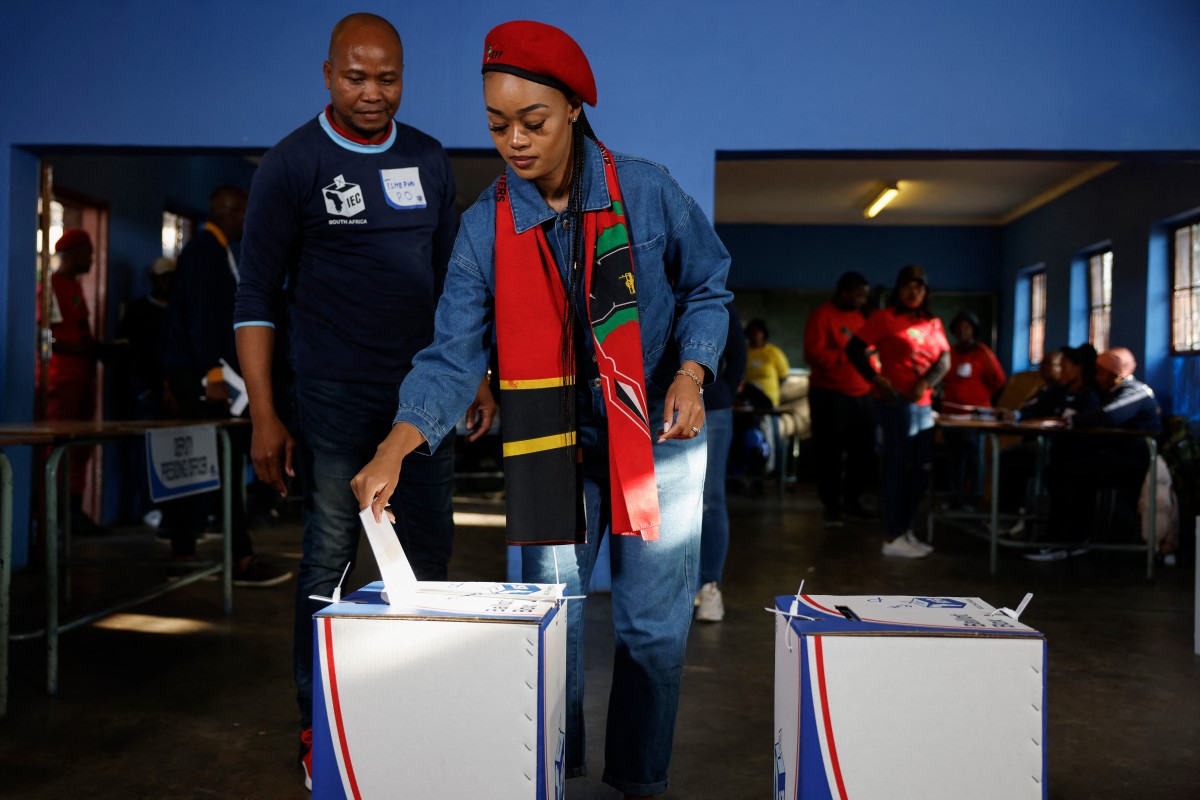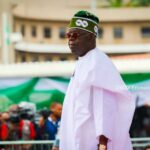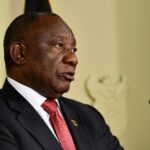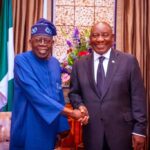South Africa’s ruling ANC was fighting Wednesday to defy expectations that it could lose its three-decade-long exclusive grip on power, as voters turned out for a watershed general election.
More than 27 million voters are registered for the most uncertain poll since the African National Congress (ANC) led the nation out of apartheid rule.
With opposition challenges from both the left and right, unemployment and crime at near record levels and a new generation growing up with no memory of the struggle against white-minority rule, the ruling party may be forced to share power.
After voting, President Cyril Ramaphosa, who is seeking re-election, said: “I have no doubt whatsoever in my heart of hearts that the people will once again invest confidence in ANC to continue leading this country.
- ‘Hungry people don’t sing’;, Tinubu under fire over national anthem bill
- Barcelona replace Xavi with Flick
“The people of SA will give the ANC a firm majority.”
But John Steenhuisen, leader of the biggest opposition party the Democratic Alliance (DA), predicted no single party would win an outright majority, creating an opening for his alliance of smaller parties.
After voting in his home city, Durban, Steenhuisen said “for the first time in 30 years there’s an opportunity for change in South Africa”.
By 1:00 pm (1100 GMT), six hours after polls opened, the Independent Electoral Commission said that 93 per cent of voting stations had opened on time, with others following later.
“There were a number of voting stations that delayed opening because of late delivery of materials, delayed escorts by security services or protests by certain community members,” it said.
In Soweto, the president’s hometown and the unofficial capital of the liberation battle, elderly ANC loyalists turned out early but as the queues lengthened there were signs of disillusionment.
Kqomotso Mtumba, a 44-year-old bank official, sporting burgundy and black beaded braids, said she voted ANC in the past but had now chosen an “upcoming party” whose manifesto had impressed her.
“The last party I voted for, their promises didn’t work out so I’ll be trying this one,” she said.
In the working-class Johannesburg district of Alexandra, even public sector workers like a young woman who gave her name only as “Keletso” were frustrated.
“I really need to see change,” the 34-year-old said.
“We need new people, fresh blood. Unemployment is bad. To put bread on the table some people do crime, others become prostitutes.”
Voters will choose the 400 members of the National Assembly who in the coming weeks will then choose a president from among their number.
For the first time since the advent of democracy in 1994, the ANC could be forced to negotiate a coalition to remain in government.
“South Africa’s general election is a watershed moment in the political history of the country,” said Aleix Montana, an analyst at risk intelligence company Verisk Maplecroft.
Under the leadership of the late Nelson Mandela, the ANC won freedom for black South Africans after decades of apartheid, then lifted millions out of poverty by creating a broad social welfare system.
Strong foundation
But many in the country of 62 million are fed up with high unemployment, currently at 32.9 per cent, rampant crime, corruption scandals, and regular power cuts and water shortages.
The economy grew a meagre 0.6 perc ent in 2023, and polls suggest the ANC could win as little as 40 per cent of the vote, down from 57 per cent in 2019.
If the ANC wins fewer than 201 seats, Ramaphosa would have to negotiate with opposition parties and independent MPs to secure a majority. It could face stark choices.
On the right, the DA has vowed to “Rescue South Africa” through clean governance, privatisation and deregulation but has struggled to shake off its image as a party for the white minority.
Polls put DA support below 25 per cent.
On the left, it is bleeding support to former president Jacob Zuma’s uMkhonto weSizwe (MK) and Julius Malema’s Economic Freedom Fighters (EFF), which are pushing for land redistribution and nationalisations.
Polls estimate these two parties are tied at around 10 per cent.
Once an ANC stalwart, Zuma fell out with his old party after being forced out of office under a cloud of corruption allegations in 2018.
He has been barred from standing as an MP because of a conviction for contempt of court but remains extremely popular in his home province of KwaZulu-Natal, where he was seen voting but did not speak to reporters afterwards.

 Join Daily Trust WhatsApp Community For Quick Access To News and Happenings Around You.
Join Daily Trust WhatsApp Community For Quick Access To News and Happenings Around You.


